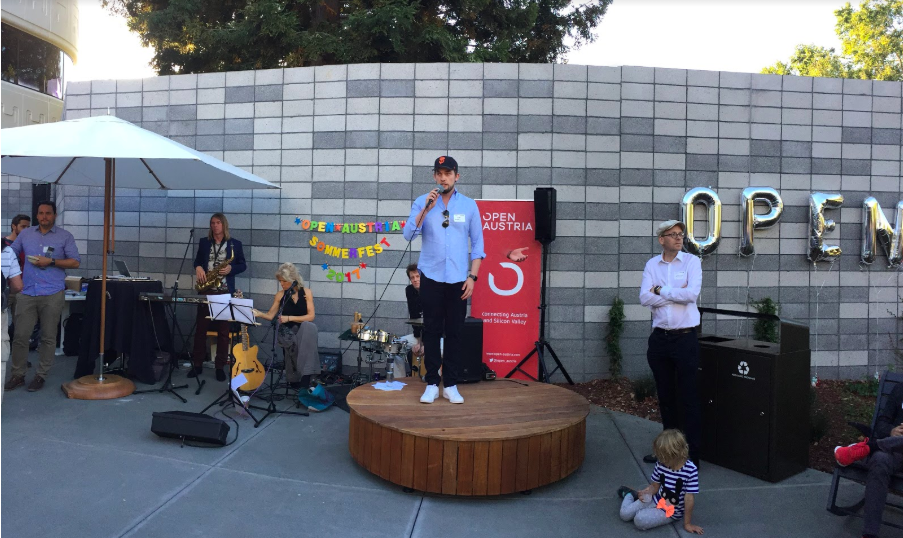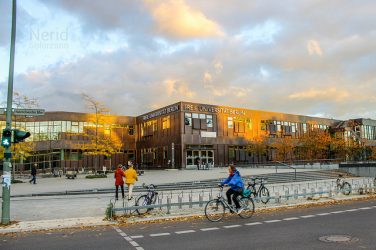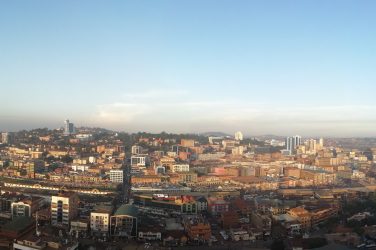At the brand new LinkedIn HQ’s outdoor patio in Mountain View, located at about an hour drive from downtown San Francisco, a group of employees from Facebook, Google and other tech companies look on while a man pitches his startup idea to an audience. Shortly after, a young man in lederhosen joined the crowd.
He is one of the guests present at last summer event organised by Open Austria, an organisation that connects Austrian entrepreneurs to the Silicon Valley community. Its incursion into this small region of the Bay Area, home to some of the most powerful startups and technology companies in the world, is not new. According to a report by the Bay Area Council Economic Institute, at least 35 other European government organisations, as well as 18 European business hubs, already operate in the area. Most of them focus on startups. A recent example of this trend is Denmark’s very first designation of a “tech ambassador” in Silicon Valley.

It’s no wonder why European public or semi-public organisations are putting down roots in the Bay Area. The European startup landscape is significantly growing — in 2016, $13.6 billion were invested in Europe’s tech sector, compared to $2.8 billion in 2011. According to the World Economic Forum — this points towards enough reasons to be optimistic.
In this respect, what Open Austria does similarly to Silicon Valley itself, is that it predominantly focuses on networking. For example, the organisations connect prospective investors to entrepreneurs and aid them in gaining access to the competitive U.S. tech market. As favourable as this sounds, a question, however, remains: can meaningful connections be truly forged over pretzels and Apfelstrudel? They might be able to, especially if paired with a laidback networking event.
“We want to be part of the international ecosystem,” says Martin Rauchbauer, the co-director of Open Austria, while a jazz band led by an Austrian musician plays in the background. Their presence in the Valley is seen as “digital diplomacy,” meaning their goal is to influence. The best case scenario would be to see the return home of its talent or its investment, but that’s not their main objective. For most European organisations it’s not solely about attaining certain targets, attracting capital or creating jobs — they are after success stories, like happened in Estonia with Skype. “In Austria, we don’t have a ‘unicorn,’ so this helps our brand,” Rauchbauer claims, making reference to startups that are valued at over $1 billion.

Despite recent improvements in the European startup landscape, tech companies on the continent still face major challenges. While there’s support for early-stage growth, access to later-stage funding is still limited compared to the U.S. When starting a business in the U.S., there’s direct access to a market of 320 million people, while in the European Union that figure only becomes accessible after navigating through not only physical borders but also 28 different cultures, languages and regulatory regimes.
These diverse barriers “inhibit the ability of startups to grow at a pan-European level,” states the report from the Bay Area Council. And, while the European Commission’s Digital Single Market Strategy aims to combine Europe’s digital markets, many of the tools proposed are still being blocked in internal EU negotiations. The result, the report points out, is that many European startups come to the Bay Area often with the support from public and private companies, organisations and institutions. This is exactly the case for the man who stood on the podium and pitched his startup idea to investors, Jan Jedlinski, the CEO of Gustav, a search platform that finds candidates for listed jobs. His company initially received a public grant from Austria, but decided to get immersed in Silicon Valley with the support of major U.S.-based accelerator, Y Combinator (one of the earliest investors of Airbnb and Dropbox).

But others do it independently, using only the help of their own network. Italian Maria Scarzella Thorpe and her business partner, Guillaume De Dorlodot, a Belgian, started NomadPass, which helps digital nomads find a place to work, in 2016. They did so without European financial support and plan to expand the business — with or without European backing. “We would have liked to have the support of the EU, but we didn’t know where to start,” says De Dorlodot. In Scarzella Thorpe’s experience, things are still too bureaucratic when working in Europe, at least in her native Italy.
Companies are therefore opting between Silicon Valley on the one hand and Europe on the other. Gustav, the company that was pitched at Open Austria’s event, has recently sold the majority of its shares which resulted in it losing its previous European ownership. That’s not the ideal situation, according to Eric Thelen, director of EIT Digital, a pan-European organization initially funded by the EU Commission that opened a hub in Silicon Valley about two years ago. The centre helps European entrepreneurs by providing education, connections and business assistance. Losing European ownership is not what they’d like, he says: when a company becomes American, it won’t benefit the European economy. Instead, they prefer to focus on accessing the U.S. market, “because when a European startup sells its services in the U.S. that is U.S. money going into Europe,” he says. And following the money is what matters to Europe.
Cover Photo: Annet Katan. Courtesy of Open Austria







